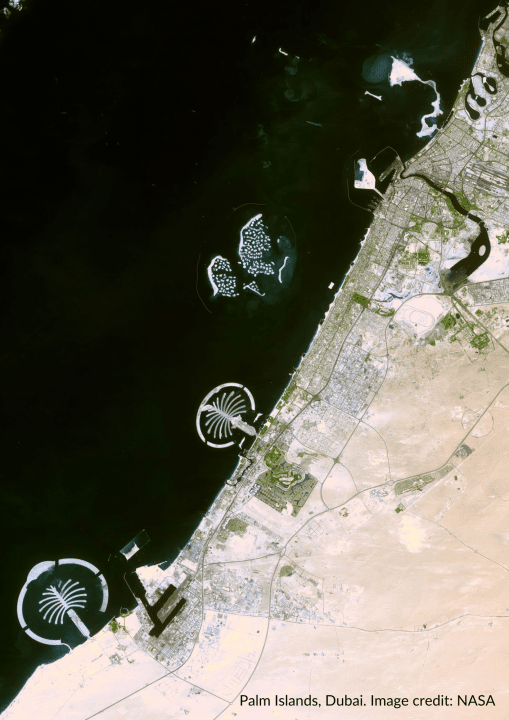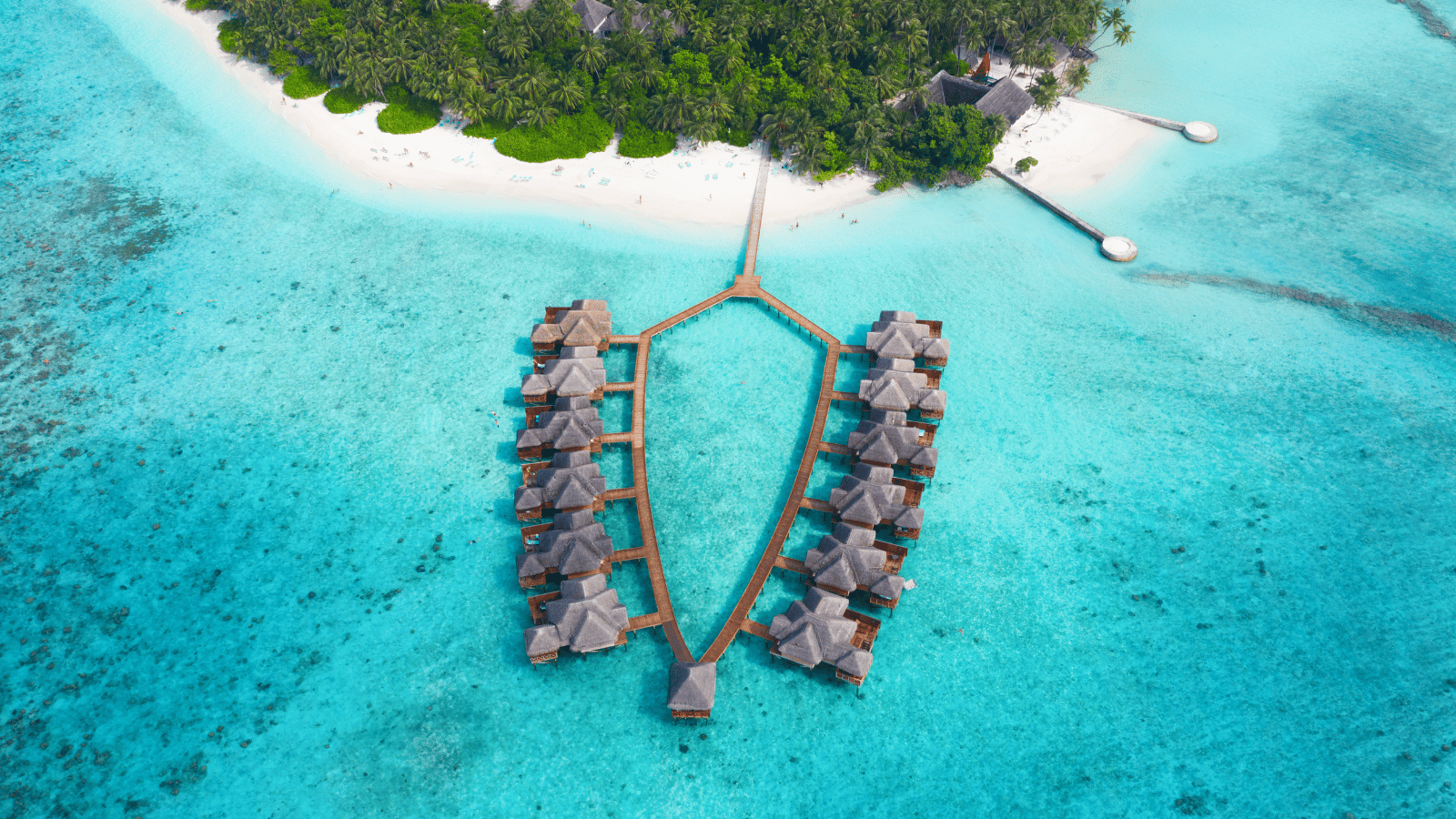
Exclusive tourism spaces have increased substantially over the past decades. From Macau’s glitzy mega-casinos to private islands in the Maldives, all-inclusive resorts in Egypt to ‘tourism special economic zones’ in Indonesia, these spaces carve out exclusive zones of fun and leisure. Why are such enclaves proliferating? What visions of state-building and ‘development’ are driving the investment in tourism enclaves? How are such enclaves governed, and in what ways do these privatised ‘tourist utopias’ (Simpson 2017) affect local communities, deepen inequalities and foster dependence on the global tourism industry?
These were some of the questions explored at a recent workshop hosted at the Chr. Michelsen Institute (CMI) in Bergen from 15 – 16 September. The aim of the two-day workshop, which brought together geographers, anthropologists and legal scholars, was to bring a critical eye to globally connected tourism enclaves. In particular, the participants wanted to examine the effects of these large-scale projects on humanitarian research and policy. Of particular concern of these types of enclave tourism developments is that they often involve exclusionary dynamics.
The workshop opened with a terrific presentation by Jarkko Saarinen, Professor of Geography (Oulu University, Finland), who gave an overview of past research on tourism enclaves, including vivid examples from his research in Namibia and Finnish Lappland. While tourism enclaves are generally seen as products of a non-locally driven neoliberal market economy, such enclaves are simultaneously spaces of enclosure and connections. Despite its locally problematic nature, Saarinen pointed out that enclave tourism has many desirable characteristics for the global tourism industry. Simply put, these tightly controlled, privatised enclaves are spaces geared towards complete revenue capture. The Covid-19 pandemic has accelerated enclave tourism developments and heightened the focus on ‘safety and risk’ management, especially in Global South contexts. While it is too early to evaluate whether this ‘covidisation’ in tourism has become a ‘new normal’, Saarinen suggested that the recent boost for ‘all-inclusive’ tourism is producing ‘all-exclusive’ spaces for locals.
‘all-inclusive’ tourism is producing ‘all-exclusive’ spaces for locals
Several presenters addressed the troubling working conditions and the racialised labour regimes associated with tourism enclaves and integrated resorts. Elena dell’ Agnese, Professor of Geography (University of Milano-Bicocca) discussed the labour arrangements on Maldivian resort islands, where the government since the 1970s has opted for a hyper exclusive tourism development model: “one island, one resort.” In the Maldives an important rationale for adopting an enclave tourism model was to keep foreign tourists ‘out’ of the Islamic social body. By locating resorts on ‘empty’ islands, the government could more easily design resort islands in accordance with tropical island paradise fantasies. In terms of working conditions, dell’Agnese noted the prevalence of expatriate staff and the rigid compartmentalisation between visible frontline staff of European or Maldivian origin and backstage workers, mainly from South Asia, who should work but not be seen. As described by dell’ Agnese, the latter workers cooked, did laundry and undertook maintenance work, with few opportunities to socialise and severely restricted freedom of movement. Hence Maldivian resorts operate as ‘islands within islands’ that normalise and entrench boundaries between hyper-mobile global leisure citizens, a segregated work force and locals.
Turning to Egypt, Karin Ahlberg (Lecturer, Department of Social Anthropology, University of Oslo) discussed the country’s tourism development as a prime example of enclavisation, including the forceful removal of local residents to pave way for tourism infrastructure. But Ahlberg’s main focus was on how the massive investments in tourism infrastructure in the 1990s and 2000s have fostered an enclavic mindset among citizens. This discussion highlighted the centrality of image-making in tourism. Ahlberg discussed how the branding of ‘beautiful Egypt’ and similar campaigns have had a powerful effect on citizenship and governance. In a post-colonial and authoritarian business-driven context, ‘rule by tourism’ implies that citizens are trained and expected to protect the brand image from being tainted. Noting how the burdens and profits of enclave tourism are unequally distributed, Ahlberg emphasised how tourism expansion has involved privatisation of large swaths of coastal areas and simultaneously deepened state control over territory and images of that territory.
Juan Zhang, Senior Lecturer in Anthropology (University of Bristol) spoke on Macau’s gambling-centred tourism industry as an example of ‘infrastructural entrapment.’ Since Macau’s return to the PRC in 1999, rapid casino development has taken control over the social and economic life of the city, turning the former Portuguese colony into a global gambling hub. Unpacking the captive magic of casino urbanism, Zhang discussed how the post-colonial government of Macau Special Administrative Region (SAR) embraced foreign investments and liberalised casino licensing. Despite complaints that the casinos are taking over the city, Zhang found that few Macau residents would like to turn off the tap entirely, as the casinos have created exceptional profits and there is no comparative revenue source in sight. Despite warnings against the over-reliance on gambling and mainland Chinese visitors, politicians and citizens have been lured into believing that Macau’s lucky streak could go on with spectacular mega-projects, including new casino zones on reclaimed land. Covid-19 and travel bans have exposed the social and commercial weaknesses created by Macau’s infrastructural entrapment, with massive reductions in tourism revenue. As China’s central leadership has recently asserted greater control over gaming licenses in Macau SAR, foreign investors may look elsewhere. Describing Macau’s casino urbanism as a ‘soft’ form of entrapment, Zhang suggested that rapidly changing political conditions and mobility restrictions may harden the edge of such entrapment.
Two presenters addressed the expansion of tourism infrastructure in Indonesia and probed the aspirations driving the establishment of ‘tourism special economic zones’ (TSEZs). Zooming in on the Mandalika Project on Lombok, Kari Telle, Senior Researcher (CMI) discussed how the carving out of this 1,175 hectare zone has been controversial, involving resettlement and allegations of coercive evictions. In 2021, UN human rights experts criticised the mega-project for being incompatible with sustainable development, raising concerns over possible human rights violations arising in the early phase of the project. Against this background, Telle examined the work that goes into legitimising the zone, which sees politicians portray this project as an almost magical engine for poverty alleviation in eastern Indonesia. Promoted as an eco-friendly beach resort and as a motorsport paradise, Mandalika’s main asset is a 4.3 km street circuit and contracts to host Grand Prix motorcycle races and similar events. Drawing on the 2022 ‘Spirit of Mandalika festival,’ Telle showed how elite politicians evoke the zone’s tantalising local myths and seaworm rituals to justify and deify this development. Yet the recognition of ‘the local’ is ambiguous, as local traditions are turned into a nationalised narrative to be mined for profit.
politicians portray this project as an almost magical engine for poverty alleviation in eastern Indonesia
Zooming out, Jeremy Kingsley, Senior Lecturer (Swinburne Law School, Swinburne University of Technology) discussed the interplay of national law and global legal platforms that enable the creation of capital-intensive tourism infrastructure projects. Using the Mandalika ‘tourism special economic zone’ as his main example, Kingsley discussed the complex legal status of such zones within transnational commercial law. While special economic zones have long been understood as ‘spaces of exception’, Kingsley stressed the privatisation of law and its role in facilitating transnational commercial activities. Special economic (tourism) zones are tangible spaces and yet simultaneously de-territorialised for legal, commercial and financial purposes. While global legal platforms create fluid jurisdictions, they have in-built constraints which imply that states seeking to attract foreign investments must adapt their laws and modes of statecraft accordingly. He described how global legal platforms render large-scale tourism infrastructure projects ‘legal’ and unpacked their impact on sovereignty and local governance arrangements.
Prior to the workshop, the convenors shared key texts and participants were asked to circulate ‘research memos’ as well as literature they found inspirational. Rather than producing finished papers, the workshop aimed to foster exchange and debate, and to identify overlapping interests and opportunities for future collaboration. More in-depth analysis of the role of global capital and its impact on statecraft, as witnessed through these major infrastructure projects will be undertaken in future blogs. Important to the analysis will be the impacts of large-scale tourism infrastructure projects in Southeast Asia and their effect on humanitarian and development projects. This will be published in a forthcoming NCHS blogpost, so stay tuned!
This workshop was co-convened by Kari Telle (CMI) and Jeremy Kingsley (Swinburne University of Technology) and was supported by the Norwegian Centre for Humanitarian Studies dynamic seed funding initiative.
